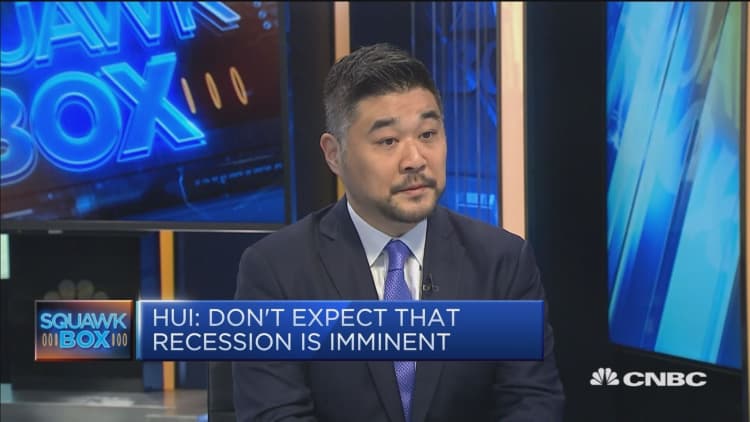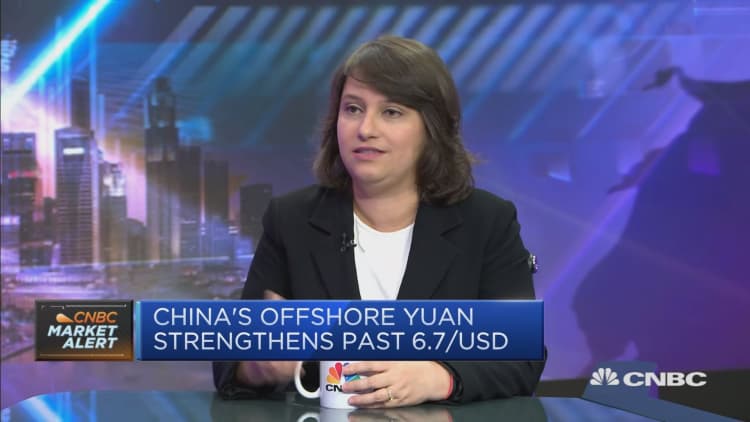Three major Southeast Asian economies are scheduled to hold elections this year — events that analysts said could help stocks in those countries recover from last year's sell-off.
Thailand is expected to kick off election season in Southeast Asia on March 24, followed by Indonesia on April 17 and the Philippines on May 13. The three countries' benchmark stock indexes ended 2018 lower as investors sold shares in emerging markets amid rising interest rates in the U.S. and trade tensions between Washington and Beijing.

Shares in the three countries have recovered some ground this year, but analysts said the coming elections could provide a further boost through higher government and consumer spending that — in some cases — could last beyond the political contests.
"We find that both government and consumer spending tend to grow strongly in both Indonesia and the Philippines in the run-up to elections. That strength appears to persist even in the months after the elections," analysts from Malaysian financial services firm Maybank Kim Eng said in a February report.
"For Thailand, years of political uncertainty may have dented the relationship, making it hard to ascertain pre-election spending trends," the analysts wrote.
Thailand's political uncertainty
Economic growth in Thailand, the second-largest economy in Southeast Asia, has been subdued in recent years due partly to political uncertainty. The country has had several changes in government over the last 15 years due to public protests and two military coups.
Thailand's current prime minister, pro-military leader Prayut Chan-o-cha, is expected to retain his post after the coming election on March 24 — which some analysts said would be positive for long-term continuity in economic policies. However, political unrest could break out if "the electorate feels that it is being denied free elections," which would hurt the Thai economy, according to consultancy Capital Economics.
Given the uncertainties, it's hard to tell whether any pre-election spending would boost domestic consumption, according to analysts from Maybank Kim Eng. The analysts noted that the ruling military junta announced cash handouts worth 87 billion baht ($2.75 billion) for the elderly and low-income population in the run-up to the election.
If such handouts translate into higher consumer spending, stocks of retailers — including Thai-listed convenience store operator CP All and Singapore-listed Thai Beverage — would benefit, said Maybank Kim Eng.
Indonesia's resilience
Indonesia, the largest Southeast Asian economy, is scheduled to hold presidential and legislative elections on April 17. Government and consumer spending have tended to be strong in the run-up to past elections — and signs have pointed to the same trend this time, analysts said.
Incumbent President Joko Widodo, commonly known as Jokowi, increased government and social spending in his last budget before the April elections. That's one of the reasons that Indonesian consumer and banking stocks may see a boost, said Joanne Goh, regional equity strategist at Singaporean bank DBS.

Goh said in a February note that her picks for Indonesian stocks include Bank Central Asia and instant noodle manufacturer Indofood Sukses Makmur.
Recent polls showed Jokowi leading in the presidential race. But the election outcome — whichever way it goes — would likely not derail the Indonesian economy, Goh said.
"On a relative basis within the region, Indonesia stands out as one with resilient domestic demand amid the global economic slowdown, and a prime beneficiary of lower oil prices and interest rates," she added.
Test on Duterte's policies
Unlike in Thailand and Indonesia, the Philippine leader — President Rodrigo Duterte — is not facing election this year. But the vote to select members in the legislative body roughly mid-way through Duterte's six-year term is seen by some analysts as a referendum on the president's policies.
Duterte's approval ratings remained high in recent months, and polls pointed to his allies retaining majority control of the legislative chamber, according to Maybank Kim Eng. The president has increased spending in his latest government budget, with a focus on social and infrastructure projects.
Pre-election spending in the Philippines has traditionally benefited consumer, media and retail stocks, said Maybank Kim Eng. The Malaysian financial services firm singled out shares of media conglomerate ABS-CBN to be the most sensitive to such spending given the typical boost in advertising revenues during elections.
Analysts from the Malaysian firm also said fast-food chain Jollibee Foods and the Philippine unit of beverage company Pepsi experienced growth in sales during past elections. Still, such an impact may be muted this time due partly to recent price increases in certain consumer goods, Maybank Kim Eng said.
Beyond the elections, a potential loosening in monetary policy in the Philippines is one of the reasons to own the country's stocks, according to HSBC. The British bank last week upgraded Philippine shares to "overweight" from "underweight."
HSBC said the financial and real estate sectors are likely to do well, and its picks included banking group BDO Unibank and conglomerate Ayala.


